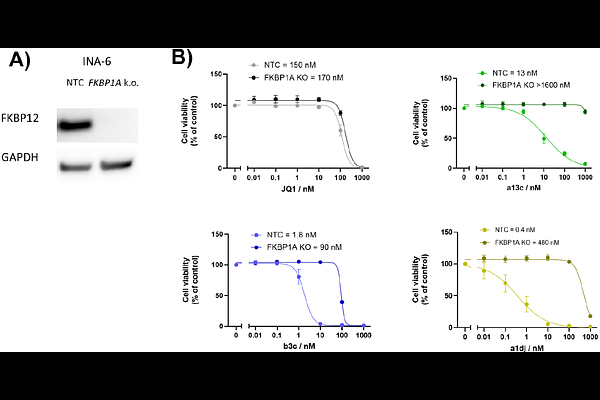Heterobifunctional Protein Binders Enable Cell Type-Specific Killing Through In-cell Enrichment

Heterobifunctional Protein Binders Enable Cell Type-Specific Killing Through In-cell Enrichment
Bulldan, A.; Zheng, M.; Meyners, C.; Purder, P.; Krieger, J.; Dreizler, J. K.; Geiger, T. M.; Repity, M.; Lein, M. H.; Lokken, I. Q.; Tewes, N.; Schwalm, M. P.; Schlesiger, S.; Moniot, S.; Knapp, S.; Hartung, I.; Holien, T.; Loewer, A.; Hausch, F.
AbstractNon-catalytic heterobifunctional molecules promise to expand the range of therapeutic options by establishing complexes between key target proteins and accessory presenter proteins equipped with additional properties. Here, we systematically investigate the rational design of such molecules, explore the biochemical basis of complex formation and determine how they achieve cellular efficacy using the endogenously expressed immunophilin FKBP12 and the transcriptional regulator BRD4 as paradigms. We present classes of bifunctional molecules that enable selective, FKBP12-dependent killing of specific cell types at subnanomolar concentrations and allow to differentiate between closely similar bromodomains. We propose that the strongly potentiated efficacy of these bifunctional compounds is based on cellular enrichment through binding to the highly abundant presenter protein FKBP12, a mechanism we term \'CellTrap\'. Our findings substantiate the concept that highly expressed, non-essential proteins can be repurposed as selective recruiters to expand therapeutic windows of existing small-molecule inhibitors, opening new avenues for designing targeted drugs with improved cell-type specificity.